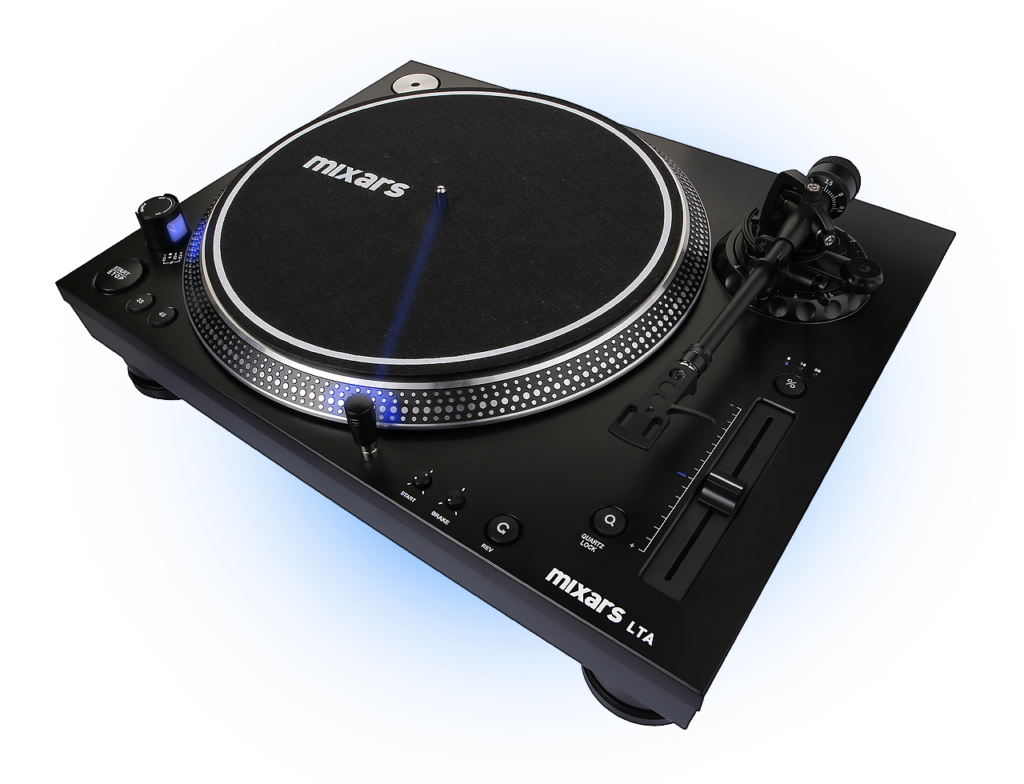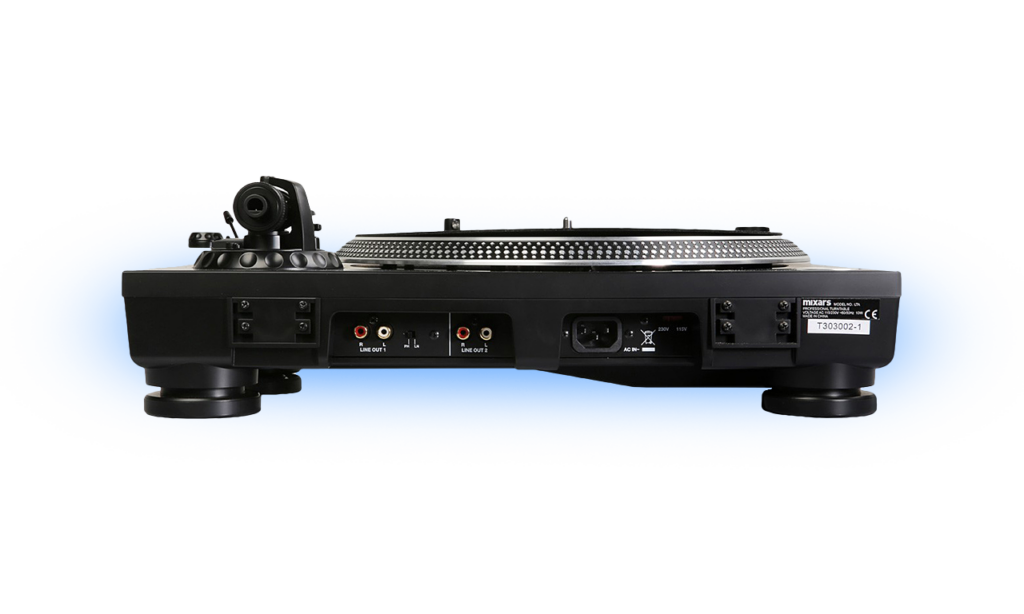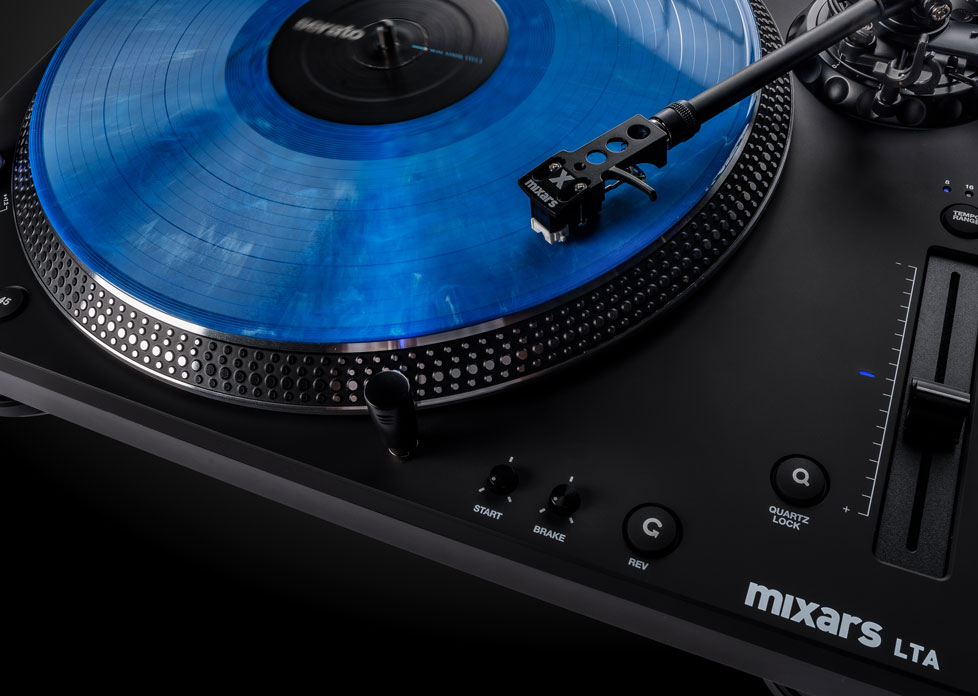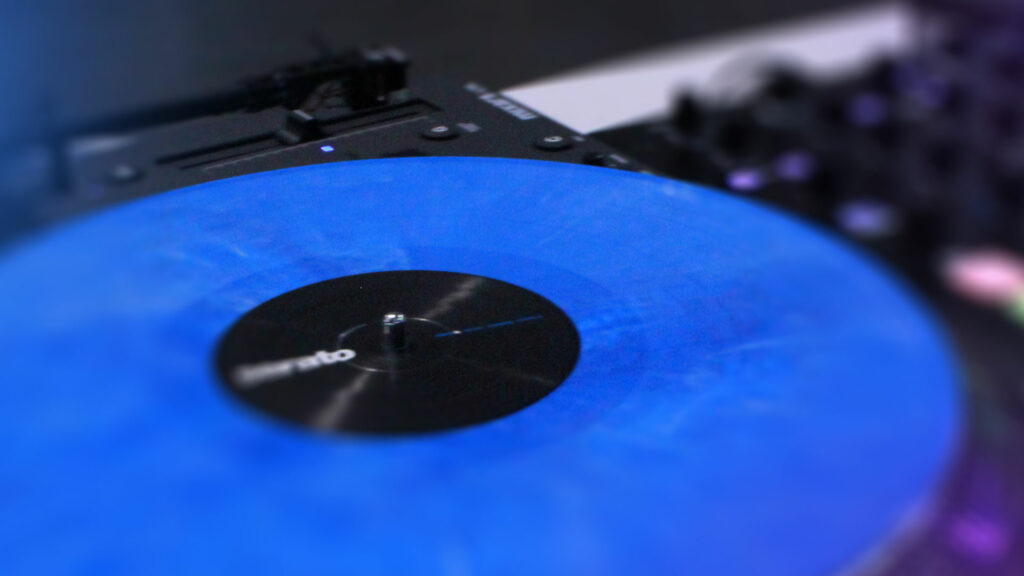The LTA might be one of the best value scratch turntables on the market. Greg Scarth finds out what sets it apart.

It’s an open secret that a lot of turntables from different brands start their lives on production lines in the same few Chinese factories. Using the same Technics-inspired high-torque motors produced by these ‘original equipment manufacturers’ (OEMs) at their heart, it’s then up to each brand to decide how the rest of their turntable will look, which features it should include and how the whole package works together. Brands including Audio-Technica, Pioneer and Numark offer variations on these ‘super OEM’ turntables, with options to suit everyone from hi-fi aficionados to DJs. What sets the Mixars LTA turntable apart is that it’s aimed squarely at scratch DJs and turntablists. This is a super OEM turntable which does things differently.

Based on the outskirts of Bologna in northern Italy, Mixars only launched around six years ago but already offer a strong range of DJ gear, with a focus on turntables and mixers. There’s an emphasis on turntablism, with battle mixers and Serato-compatible controllers in the line-up. The LTA is the brand’s scratch turntable. It’s nearly identical to its sister product, the Mixars STA turntable, with one exception: the STA features a traditional Technics-style S-shaped tonearm, while the LTA has a straight tonearm. The benefits of a straight tonearm – at least in the DJ context – are mainly of interest to anyone who wants to scratch. Typical DJ turntables with S-shaped arms prioritise sound quality and aim to reduce record wear; most DJ turntables with straight tonearms aim to avoid skipping and try to keep the needle locked in the groove. As such, the latter sacrifices a little bit of sound quality in order to work better for scratching.

Like most DJ turntables, the LTA is heavily inspired by the classic Technics SL-1200 design: it’s got a solid build with a nice matte finish to the plinth, a single start/stop button and ±8/16/50% tempo ranges for the pitch fader. Alongside the platter you’ll also find a reverse button and two knobs to adjust start and braking torque. Whether you’re a complete beginner or familiar with the standard DJ turntable format, the LTA is simple to set up. It’s worth noting that there’s a headshell included but you’ll need to fit your own cartridge and stylus. A good scratch cartridge like the Ortofon Concorde MkII Scratch is ideal, or something like the Tonar Birdie if you’re on a tighter budget. With the cartridge fitted, it’s a case of adjusting the counterweight and setting the tonearm height much as you would with just about any DJ turntable.

In addition to the turntablist-friendly tonearm and handy start/brake controls, the LTA has some interesting features which set it apart from most of its rivals. Round the back of the unit you find not just one set of RCA phono/line outputs but a second pair which output the signal simultaneously. This might seem a bit unusual at first but it gives you a few nice options. You could connect the LTA to two mixers at the same time, for a scratch battle setup. Alternatively, you could leave the deck connected to a mixer and a DVS setup at the same time without having to switch cables. Or, you could record the output of the turntable while also having it connected to a mixer.

In terms of sound and performance, the LTA doesn’t disappoint. We’re used to the high-torque motors of the super OEM turntables at this point, and the rest of the deck also meets expectations when it comes to sound quality and pitch stability. Whether using a conventional record or control vinyl for Traktor, the tonearm tracks nicely and seems stable even when getting rough with some fast cuts. The pitch control has a good feel to it and works precisely, even when in 50% mode for wild melodic pitch effects.
At this price point, there are lots of good options when it comes to DJ turntables, but nothing which quite matches the LTA when it comes to scratching/turntablism. For similar money, you could have a Pioneer PLX-500. A little more money will get you an Audio-Technica AT-LP140XP or a Reloop RP-7000 MK2. All are good turntables, but none of them offer the unique features of the LTA (the Reloop is the only one of the three to offer adjustable start and braking speed). If you’re a scratch DJ who wants the benefits of a straight tonearm, dual outputs and adjustable torque, the LTA is probably the best option around.
Greg Scarth
More info/buy